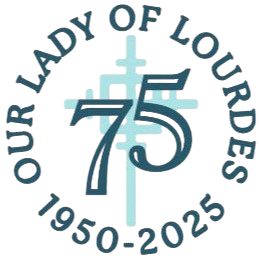There are four steps in the Sacrament of Penace:
We feel contrition for our sins and a conversion of heart to change our ways.
We confess our sins and human sinfulness to a priest.
We receive and accept forgiveness (absolution) and are absolved of our sins.
We celebrate God’s everlasting love for us and commit to live out a Christian life.

Sin hurts our relationship with God, ourselves and others. As the Catechism states:
The sinner wounds God’s honor and love, his own human dignity…and the spiritual well-being of the Church, of which each Christian ought to be a living stone. To the eyes of faith no evil is graver than sin and nothing has worse consequences for the sinners themselves, for the Church, and for the whole world.
CCC 1487, 1488
A mature understanding of sin includes reflecting upon our thoughts, actions and omissions as well as examining the patterns of sin that may arise in our lives. With contrite hearts, we are also called to reflect upon the effects of our sins upon the wider community and how we might participate in sinful systems.
Contrition and conversion lead us to seek a forgiveness for our sins so as to repair damaged relationships with God, self, and others. We believe that only ordained priests have the faculty of absolving sins from the authority of the Church in the name of Jesus Christ (CCC 1495). Our sins are forgiven by God, through the priest.
The Spiritual effects of the Sacraments of Reconciliation include:
- reconciliation with God by which the penitent recovers grace
- reconciliation with the Church
- remission of the eternal punishment incurred by mortal sins
- remission, at least in part, of temporal punishments resulting from sin
- peace and serenity of conscience, and spiritual consolation
- an increase of spiritual strength for the Christian battle (CCC 1496)

Individual confession with a priest is the principal means of absolution and reconciliation of grave sins within the Church. The Sacrament of Reconciliation frees us from sinful patterns of behavior and calls us to complete conversion to Christ. Reconciliation heals our sins and repairs our relationships. Individual confessions are celebrated by appointment.
Individual Confessions: Saturdays at 3:30 PM
Please contact Fr. David (dsanchez@ourlourdes.org) or Fr. John (jschwartzlose@ourlourdes.org) by calling the office at 502-896-0241
to schedule an appointment.
Communal Penance Services
What is a Communal Penance Service?
Communal Penance Services or Reconciliation Services are a form of sacramental confession. It mixes public prayer and individual confession to a priest, followed by absolution. A communal penance service always includes the following:
- The penitents and sorrow for sin usually expressed in an Act of Contrition
- Confession of sins to a priest with absolution given
- An act of penance
The Structure of the Service
Public Prayer
Usually, a communal penance service includes a Scripture reading and a brief exhortation by the priest. An examination of conscience follows this, and the community prays the Act of Contrition together. Sometimes, a single, general penance is assigned to everyone participating; at other times, a penance is given during the individual confession.
Individual Confession and Reconciliation
After the communal part of the ceremony, those present will individually confess their sins to the priest and receive absolution and penance if it has not been assigned in the communal setting. The Act of Contrition is not repeated privately because it has been part of the communal service. The priest prays the words of absolution individually over the penitent, and a collective penance is given.
